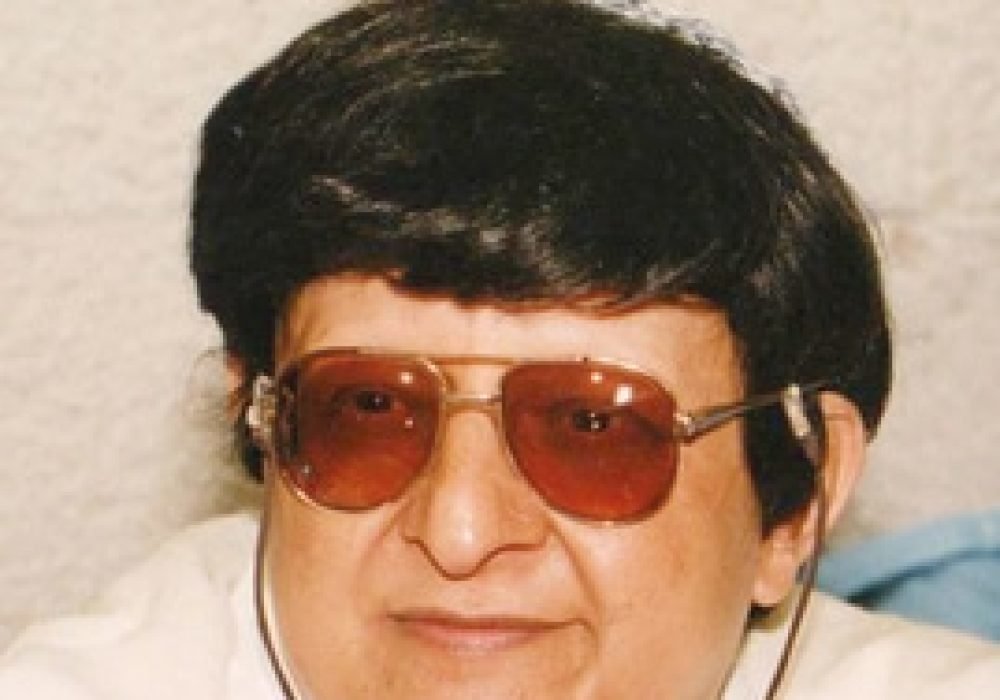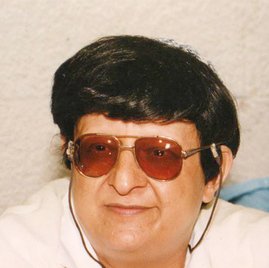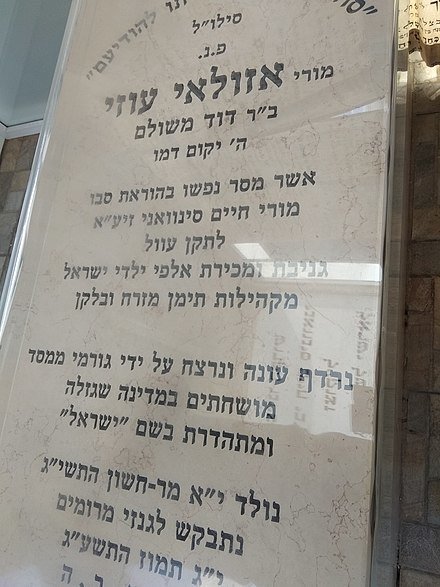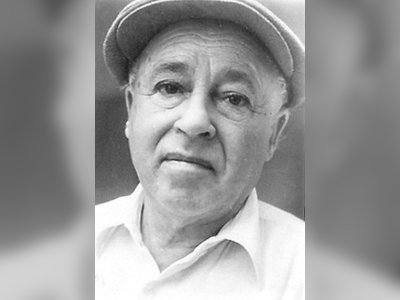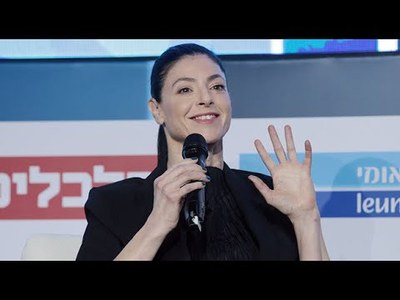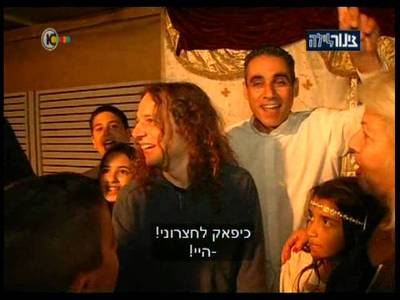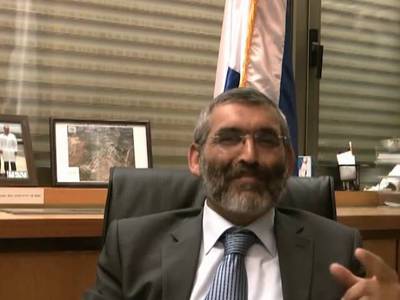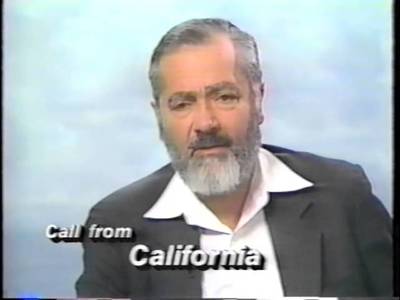מורשת גדולי האומה
בזכותם קיים
beta
Uzi Meshulam: The Controversial Figure Behind the Yemenite Children Affair
Uzi Meshulam's life and activism were marked by controversy and a relentless pursuit of justice for the Yemenite children who went missing. His actions, which sparked a nationwide debate and inquiry, continue to be a point of contention and reflection in Israeli society to this day.
Uzi Meshulam, born on October 30, 1952, and passing away on June 21, 2013, was a Yemenite-born rabbi who became widely known for his role in the Yemenite Children Affair. This documentary-style article will delve into the life, activism, and controversies surrounding Uzi Meshulam.
Early Life and Education:
Uzi Meshulam was born and raised in the Pajah neighborhood of Petah Tikva, Israel. He received his education at the "Ner Etzion" school. In the late 1970s, he began teaching at the religious state school "Morasha" in the Amishav neighborhood, sparking his public involvement in the cause of Yemenite children.
The Yemenite Children Affair:
Meshulam found himself at the center of a tumultuous affair that began in April 1994. During this time, he distributed pamphlets alleging the kidnapping of Yemenite children, drawing comparisons between their disappearance and the atrocities committed by the Nazis during the Holocaust. He claimed that thousands of children from Yemen, Eastern Europe, and the Balkans were sold to the United States for medical experiments under the guidance of Dr. Mengele.
A local dispute with a contractor in Yavne, which Meshulam insisted was a planned provocation orchestrated by the authorities, escalated into a police intervention. His followers fortified his house with sandbags and stones, brandishing weapons while demanding the establishment of a royal commission to investigate the disappearance of the children. Subsequently, a significant police force, sharpshooters, and special forces besieged the house for weeks.
On May 10th, at 3:00 AM, Meshulam left his house for a meeting with the Police Commissioner, Assaf Hefetz, who had assured him safe passage and return. Hefetz reneged on his promise due to concerns for the lives of both sides, leading to Meshulam's arrest. Simultaneously, police officers stormed the house, and according to their accounts, accurate gunfire erupted from within. In response, a sniper fatally shot one of the gunmen, Shlomo Asulin, a 19-year-old soldier who had deserted his unit. Asulin had previously engaged in negotiations with a police officer, during which he allegedly stated the intent to kill or be killed if the police raided the house. Eleven of Meshulam's followers were arrested, and a cache of weapons, explosives, and Molotov cocktails was discovered.
Meshulam's followers were charged with a range of offenses, including conspiracy to commit crimes, obstruction of a police officer in the execution of his duty, attempted aggravated assault, making threats, deliberate endangerment of life, and the unlawful manufacture of weapons. They received sentences ranging from 15 months to five years in prison. Meshulam himself was convicted of instructing the throwing of Molotov cocktails at law enforcement officers and disrupting legal proceedings. He was sentenced to eight years in prison but had his sentence reduced to six and a half years on appeal.
In October 1994, a prison officer at the Nitzan Detention Center survived an assassination attempt by two of Meshulam's followers. Both were convicted and received lengthy prison sentences.
Following these events, in January 1995, a state commission of inquiry, led by Justice Dov Levin of the Supreme Court, was established to investigate the disappearance of Yemenite children between 1948 and 1954. While the commission provided explanations for many cases of disappearance and found no evidence of a conspiracy, several cases remained open.
In January 1996, Meshulam was transferred to the Shatta Prison, where his health deteriorated significantly. He was subsequently hospitalized. Although his supporters continued to protest, public interest in the case waned over the years.
Meshulam was released from prison in 1999 after serving seven months of his sentence, following an appeal and five years of house arrest. His release was conditional on his commitment to focus on the Yemenite children issue. Due to his fragile health, he was bedridden for most of his remaining years.
His eldest son, Emmanuel Yedidia (Ami), left Israel with his family in late 2005, seeking political asylum in Canada. He claimed that the Israeli establishment had harassed him and forced him to leave the country because of his father's exposure of the child abduction issue. He later returned to Israel.
Legacy and Controversy:
In April 2017, Ayelet Shaked, the Minister of Justice at the time, stated that the State of Israel had done an injustice to Uzi Meshulam.
The Amram Association, working to raise awareness about the disappearance of Yemenite children, also advocates for clearing Meshulam's name.
In November 2018, Gilad Gamliel, the Minister for Social Equality, submitted a request to President Reuven Rivlin for a pardon for Meshulam. However, in October 2020, Rivlin rejected the request, citing the severity of Meshulam's actions, especially his role in attacking law enforcement officers and endangering the safety of local residents during the standoff.
Death:
Uzi Meshulam passed away on June 21, 2013, at the age of 60. He was buried in the Yehud cemetery near Rabbi Sinueani.
His gravestone bears the inscription: "Here lies my teacher, Azulai Uzi son of David Meshulam, may his memory be blessed, who sacrificed his life at the directive of my grandfather, Rabbi Chaim Sinueani, of blessed memory, to rectify the injustice of the abduction and sale of thousands of Israeli children from the communities of Yemen, Eastern Europe, and the Balkans, who were persecuted, tortured, and murdered by corrupt elements in the state that robbed and boasted in the name of 'Israel.'"
Early Life and Education:
Uzi Meshulam was born and raised in the Pajah neighborhood of Petah Tikva, Israel. He received his education at the "Ner Etzion" school. In the late 1970s, he began teaching at the religious state school "Morasha" in the Amishav neighborhood, sparking his public involvement in the cause of Yemenite children.
The Yemenite Children Affair:
Meshulam found himself at the center of a tumultuous affair that began in April 1994. During this time, he distributed pamphlets alleging the kidnapping of Yemenite children, drawing comparisons between their disappearance and the atrocities committed by the Nazis during the Holocaust. He claimed that thousands of children from Yemen, Eastern Europe, and the Balkans were sold to the United States for medical experiments under the guidance of Dr. Mengele.
A local dispute with a contractor in Yavne, which Meshulam insisted was a planned provocation orchestrated by the authorities, escalated into a police intervention. His followers fortified his house with sandbags and stones, brandishing weapons while demanding the establishment of a royal commission to investigate the disappearance of the children. Subsequently, a significant police force, sharpshooters, and special forces besieged the house for weeks.
On May 10th, at 3:00 AM, Meshulam left his house for a meeting with the Police Commissioner, Assaf Hefetz, who had assured him safe passage and return. Hefetz reneged on his promise due to concerns for the lives of both sides, leading to Meshulam's arrest. Simultaneously, police officers stormed the house, and according to their accounts, accurate gunfire erupted from within. In response, a sniper fatally shot one of the gunmen, Shlomo Asulin, a 19-year-old soldier who had deserted his unit. Asulin had previously engaged in negotiations with a police officer, during which he allegedly stated the intent to kill or be killed if the police raided the house. Eleven of Meshulam's followers were arrested, and a cache of weapons, explosives, and Molotov cocktails was discovered.
Meshulam's followers were charged with a range of offenses, including conspiracy to commit crimes, obstruction of a police officer in the execution of his duty, attempted aggravated assault, making threats, deliberate endangerment of life, and the unlawful manufacture of weapons. They received sentences ranging from 15 months to five years in prison. Meshulam himself was convicted of instructing the throwing of Molotov cocktails at law enforcement officers and disrupting legal proceedings. He was sentenced to eight years in prison but had his sentence reduced to six and a half years on appeal.
In October 1994, a prison officer at the Nitzan Detention Center survived an assassination attempt by two of Meshulam's followers. Both were convicted and received lengthy prison sentences.
Following these events, in January 1995, a state commission of inquiry, led by Justice Dov Levin of the Supreme Court, was established to investigate the disappearance of Yemenite children between 1948 and 1954. While the commission provided explanations for many cases of disappearance and found no evidence of a conspiracy, several cases remained open.
In January 1996, Meshulam was transferred to the Shatta Prison, where his health deteriorated significantly. He was subsequently hospitalized. Although his supporters continued to protest, public interest in the case waned over the years.
Meshulam was released from prison in 1999 after serving seven months of his sentence, following an appeal and five years of house arrest. His release was conditional on his commitment to focus on the Yemenite children issue. Due to his fragile health, he was bedridden for most of his remaining years.
His eldest son, Emmanuel Yedidia (Ami), left Israel with his family in late 2005, seeking political asylum in Canada. He claimed that the Israeli establishment had harassed him and forced him to leave the country because of his father's exposure of the child abduction issue. He later returned to Israel.
Legacy and Controversy:
In April 2017, Ayelet Shaked, the Minister of Justice at the time, stated that the State of Israel had done an injustice to Uzi Meshulam.
The Amram Association, working to raise awareness about the disappearance of Yemenite children, also advocates for clearing Meshulam's name.
In November 2018, Gilad Gamliel, the Minister for Social Equality, submitted a request to President Reuven Rivlin for a pardon for Meshulam. However, in October 2020, Rivlin rejected the request, citing the severity of Meshulam's actions, especially his role in attacking law enforcement officers and endangering the safety of local residents during the standoff.
Death:
Uzi Meshulam passed away on June 21, 2013, at the age of 60. He was buried in the Yehud cemetery near Rabbi Sinueani.
His gravestone bears the inscription: "Here lies my teacher, Azulai Uzi son of David Meshulam, may his memory be blessed, who sacrificed his life at the directive of my grandfather, Rabbi Chaim Sinueani, of blessed memory, to rectify the injustice of the abduction and sale of thousands of Israeli children from the communities of Yemen, Eastern Europe, and the Balkans, who were persecuted, tortured, and murdered by corrupt elements in the state that robbed and boasted in the name of 'Israel.'"
- עוזי משולם – ויקיפדיהhe.wikipedia.org
